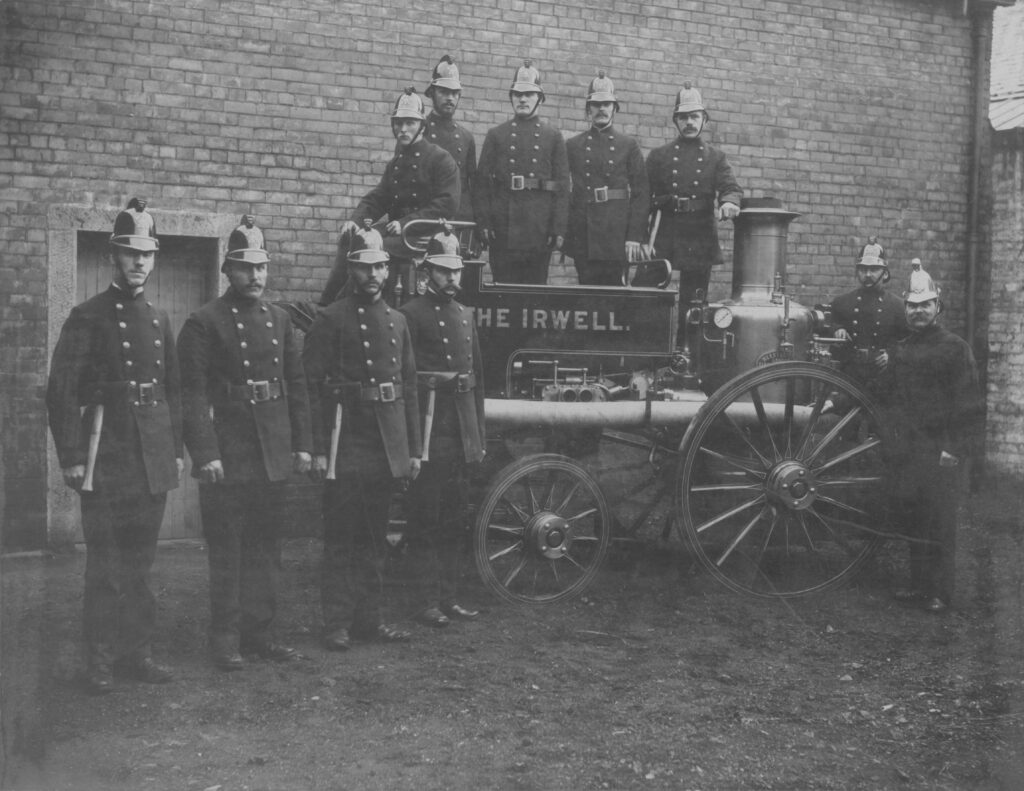At the time of the opening of the new fire station on Rochdale Road, in 1960 the Bacup Borough Fire Brigade had been in existence for about 66 years. Under the control of the local board the brigade may never have come into existence had it not been for a devastating fire at Beulah Methodist Free Church, Britannia in 1892, which left the building destroyed despite the efforts of Britannia residents and dozens of volunteer firefighters.
Using a donkey engine from Britannia Mill and water from the mill lodge it was still over an hour and a half before anything effective could be put onto the fire. This was due to the bad state of repair of the hoses, especially those of the corporation whose hoses split more or less as soon as they were coupled up. In less than two hours the church was nothing but a smouldering ruin, leading to a public outcry over the lack of such a large borough as Bacup having no real facilities to fight fires.
The council was left with no alternative but to take action, and so in 1893, the council purchased new hosepipes and a manual pump. This still did not satisfy the cry from the public that a “proper” fire service was provided, and so in October of 1893, the Bacup Borough Fire Brigade came into existence, controlled by the Chief Constable. The public, however, was still not satisfied and the councillors were forced to put plans into place to build a new firehouse and purchase a horse-drawn fire engine.
This was a new Greenwich steam fire engine, which was initially stabled at Broadclough until the premises at Henrietta Street were completed. Motive power was provided by horses belonging to the waterworks and baths departments of the council, which were permanently stabled at the fire station in readiness for any calls which may come through.
This new engine which was named The Irwell was the pride of Bacup and was described as having a single jet capable of throwing water to a height of 160 feet and, it was added, four more jets could be added simultaneously. The Irwell was replaced in 1916 by the first motorised fire engine in the town.
